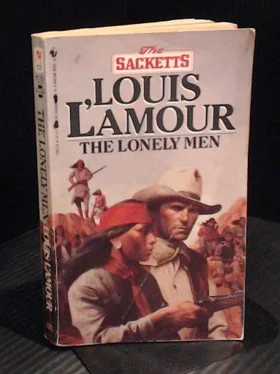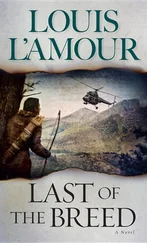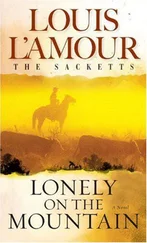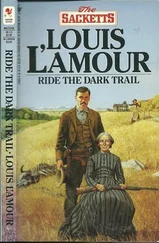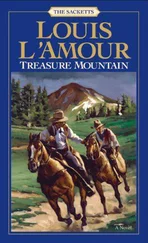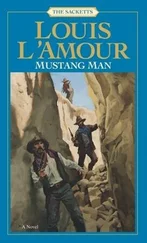Louis L'Amour - The Lonely Men
Здесь есть возможность читать онлайн «Louis L'Amour - The Lonely Men» весь текст электронной книги совершенно бесплатно (целиком полную версию без сокращений). В некоторых случаях можно слушать аудио, скачать через торрент в формате fb2 и присутствует краткое содержание. Жанр: Старинная литература, на английском языке. Описание произведения, (предисловие) а так же отзывы посетителей доступны на портале библиотеки ЛибКат.
- Название:The Lonely Men
- Автор:
- Жанр:
- Год:неизвестен
- ISBN:нет данных
- Рейтинг книги:4 / 5. Голосов: 1
-
Избранное:Добавить в избранное
- Отзывы:
-
Ваша оценка:
- 80
- 1
- 2
- 3
- 4
- 5
The Lonely Men: краткое содержание, описание и аннотация
Предлагаем к чтению аннотацию, описание, краткое содержание или предисловие (зависит от того, что написал сам автор книги «The Lonely Men»). Если вы не нашли необходимую информацию о книге — напишите в комментариях, мы постараемся отыскать её.
The Lonely Men — читать онлайн бесплатно полную книгу (весь текст) целиком
Ниже представлен текст книги, разбитый по страницам. Система сохранения места последней прочитанной страницы, позволяет с удобством читать онлайн бесплатно книгу «The Lonely Men», без необходимости каждый раз заново искать на чём Вы остановились. Поставьте закладку, и сможете в любой момент перейти на страницу, на которой закончили чтение.
Интервал:
Закладка:
That boy back there ... could he keep them from knowing? That troubled me some.
There was small chance he could get to the other youngsters, but there was some visiting back and forth ... it could be.
But where was Orry Sackett? Where was my brother's son?
Chapter 7
Through the chill dawn we climbed toward the high peaks, weaving our way among trees that dripped with moisture from the low-hanging clouds. Then we descended several hundred feet into a secluded park ringed with splendid pines. On the far side a cold, clear stream fell over a limestone ledge into a deep pool.
In every sheltered spot there were ruins ... ancient ruins, half buried in earth or an overgrowth of brush or moss. In one place a gnarled and twisted cedar grew inside a wall, a cedar that itself must have been hundreds of years old.
I questioned Rocca, and he shrugged. "Who knows? They were the People Who Came Before, and they were gone before the Apaches came."
He was only mildly curious. "Many peoples have come and gone. It is the way of the world. The People of the Stone Houses ... the people who built the cliff dwellings in Arizona and Colorado. They were driven out by the Navajo, who killed many of them.
"The white man has driven out the Indian, but the Indian drove out others before, and those others had driven peoples before them. It is always the same.
I think the Indian was defeated by the traders, not by the soldiers."
"How so?" Battles asked.
"The traders made the Indian want things he could not make himself. He came to need the white man, to depend upon him. The Indian had to trade or steal to get the rifles and other things he wanted that the white man had."
It was what I had thought myself. Rocca shrugged again. "The first white trader who came to the Indians brought their doom in his pack. I think it is so."
We were silent then. We came to a fearful slide and went down it, our horses sliding on their haunches for a good part of the distance to the bottom of a gloomy canyon, through which ran the headwaters of the Bavispe. It was an eerie, haunted spot, and I swung down, standing for a moment with both hands on the saddle, listening. But there was no sound except that of falling water, and the sighing of wind among the pines.
"I don't like it," John J. said. "It looks like the dark edge of hell."
Me, I was thinking of those youngsters among the Apaches, so strange to them, so frightening. They must be scared stiff. Yet I could think of worse things than living out a life in these mountains. The Sierra Madres were beautiful.
We were coming close now, and we could see plenty of Apache sign. In gloomy places like this a body always had the feeling of being watched.
We drank, one at a time, with the others watching and in the saddle. We crossed the river then and went up a switchback trail for a thousand feet toward a tremendous promontory.
Storm clouds hung over the nearby peaks, and there was electricity in the air.
Kahtenny's rancheria was somewhere below us, hidden in the low clouds. We started down through the trees, but had gone only a short distance when the rain began to fall in sheets, swept by a violent wind.
The forest offered slight cover, and there was nothing to do but hole up and wait it out. We found a place where a great pine had fallen almost to the ground, part of it resting among the rocks. We cut away the branches on the under side and took shelter there, leading our horses under cover with us. There was barely room for us, and the pommel of my saddle brushed the bark of the pine.
We took a chance, with the rain to keep down the smoke and keep the Apaches under shelter, and built a small fire where we made soup and coffee.
After a break, with the rain still falling, I took up my rifle and went out on a scout. Keeping to the trees, I worked my way along the cliff. The rocks glistened with wet, and the raindrops pelted my slicker like thrown stones, but the trees offered some shelter.
Suddenly I was looking down into Kahtenny's rancheria. There were a few smokes from wickiups, but nobody was visible.
I felt a movement behind me, and I turned sharply. It was Tampico Rocca.
He indicated the rancheria below us. "I could not fool them now," he said. "They would smell the difference in me. I have been eating the white man's food."
"How many would you guess there are?" I asked. "Twenty, maybe?"
"Twenty, or twenty-five."
Two dozen human wolves ... and I mean nothing against them. My enemies for the time, yes ... but I respected them. At trailing or fighting they were fierce and relentless as wolves, and we had done the impossible and followed them into their almost impregnable Sierra Madre.
"I'm going down," I said. "I shall get close and listen."
Rocca stared at me. "You crazy. They will hear you. Their dogs will smell you."
"Maybe, but the rain will help."
"All right," he said, "we both go." It would be a daring thing, but there was enough of the Apache in him to be cautious. And it would be a chance to count coups against the Apaches.
We crawled and slid down the mountain. From time to time we paused to listen, then moved on. We were fools, I told myself. What we did was insanity, no less.
But I had to find Orry, and every hour in these mountains was an hour of danger for us ... and for him.
Together we crept to the edge of the encampment in the driving rain. Rocca darted to the wall of one of the wickiups, and I went to another. Crouching in the rain, I listened, but heard nothing except the low mutter of Indian voices and the crackle of a fire. As I was moving to another, I was stopped for a moment by Rocca's uplifted finger. Hesitating, I watched him, holding my rifle, muzzle down under my slicker. He shook his head, and moved on. We had listened at five wickiups and were about ready to give up ... Suppose the children were not talking? Suppose they were not there at all?
Rocca gestured suddenly, and I went to him. We heard a mutter of talk within, and then, sure enough, a boy speaking plainly in English.
I caught Rocca's arm. "Cover me," I said, and lifting the flap, I stepped in.
For a moment I could see nothing, although I had taken the precaution of closing my eyes for a moment before stepping inside. Then in the red glow of the coals I saw a startled buck staring at me, and beginning to rise. On a pile of skins near one wall were three white children ... I could just make them out.
A squaw was there, holding a child at her breast. She stared at me, no anger or hatred in her eyes, just a calm acceptance. "Do not cry out," I said in Apache.
Then in the event she did not understand my poor use of the Apache tongue, I repeated it in Spanish.
The buck was past his astonishment, and he came at me with a lunge. I met him halfway with the butt of my rifle, and he went down in a heap, out cold.
"All right," I said to the children, "we're all going home. Wrap those skins around you and come on."
Turning to the young Indian woman, who had not stirred, I spoke quietly in Spanish. "I do not wish to hurt anybody. I want only to take these children home."
She merely looked at me as the three children ran toward me. I saw that one of them was a girl. I waved them past, toward the wickiup entrance, and they went out quickly into the rain. With another glance at the squaw, I followed.
Tampico Rocca was already hurrying the youngsters toward the brush-clad hill where we had come down, and he was backing away, covering the wickiups with his rifle. I ran toward him, and was almost to the hillside when a man with a bloody head sprang from the wickiup from which we had taken the children.
He leaped out, staggered, then glared wildly around. His first yell failed him, but he shouted again and his voice came full and strong. As he yelled he lifted his rifle, and Rocca shot him.
Читать дальшеИнтервал:
Закладка:
Похожие книги на «The Lonely Men»
Представляем Вашему вниманию похожие книги на «The Lonely Men» списком для выбора. Мы отобрали схожую по названию и смыслу литературу в надежде предоставить читателям больше вариантов отыскать новые, интересные, ещё непрочитанные произведения.
Обсуждение, отзывы о книге «The Lonely Men» и просто собственные мнения читателей. Оставьте ваши комментарии, напишите, что Вы думаете о произведении, его смысле или главных героях. Укажите что конкретно понравилось, а что нет, и почему Вы так считаете.
